
 Flash News
Flash News
Inceneratori jashtë funksionit, përfshihet nga flakët fusha e mbetjeve në Elbasan
Accident on the Lezhë-Shëngjin axis, one injured
"Arsonist" arrested for repeatedly setting fires in Vlora (NAME)
Three cars collide in Tirana, one of them catches fire
He abused his minor daughter, this is a 36-year-old man in custody in Fier
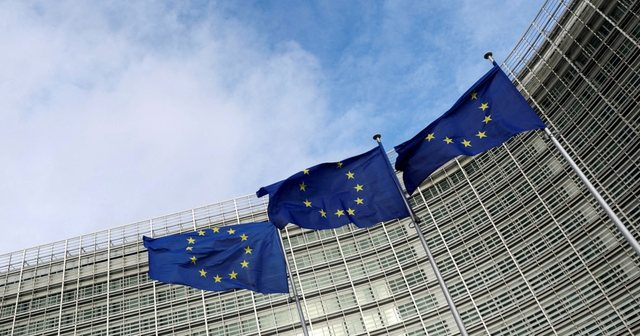
From July 1, Denmark took over the Presidency of the Council of the European Union, inheriting a number of important political files - among them one that has long been shelved: Kosovo's application for EU membership.
Submitted as early as December 2022, this application has not even passed the first formal phase - review by the EU Council and then sending it for opinion to the European Commission.
Under normal circumstances, this would be a more routine procedure. But in the case of Kosovo - which is still not recognized by five member states - everything is complicated by political calculations, diplomatic hesitations and a lack of will to treat this issue more seriously.
Kosovo is the only country in the Western Balkans that does not have the status of a candidate country for EU membership - a fact that clearly reflects the stagnation of its European agenda.
The question now is whether the Danish presidency will deal with this dossier, or will it follow the path of its predecessors, leaving it on hold indefinitely.
She did not respond to this inquiry from Radio Free Europe, but experts in these processes do not expect any significant changes during her six-month term.
"At the moment, there is nothing concrete, no movement. The Danes really wanted to move things forward, but, unfortunately, they had no help from Kosovo," says Rikard Jozwiak, Europe editor at Radio Free Europe.
He explains that the main difficulty is not only related to the skepticism of some member states towards Kosovo, but also to the political situation in Pristina itself.
It is worth remembering that Kosovo has been functioning for months with institutions in place, or without a consolidated government that could seriously resume engagement with the EU.
Regarding the normalization of relations with Serbia, he says that Kosovo has not made any significant moves for almost two years now, remaining on the sidelines even in this process - vital for its European future.
"Therefore, it will be very difficult to convince countries skeptical of Kosovo, because it is, realistically, not one of those countries in the Balkans where there are positive developments," says Jozwiak.
Although elections were held in February, Kosovo continues to be without a constituted Assembly and, consequently, without a formed government, due to disagreements between the main parties.
Normalization of relations is a necessary condition for both Kosovo and Serbia to move forward on the path of European integration.
However, Kosovo's acting Prime Minister, Albin Kurti, has refused to meet with Serbian President Aleksandar Vučić since the attack in Banjska in September 2023, first demanding the surrender of those accused of that event.
This approach has made dialogue difficult and has influenced a more critical stance of the EU towards Kosovo.
Kurt Bassuener, from the Council for Democratization Policy in Berlin, says that the EU's policy, focused mainly on Kosovo's dialogue with Serbia, is harmful to Kosovo, as, as he says, it has brought unilateral pressure on it and more lenient treatment for Serbia.
This, according to him, has created inequality in international relations and explains the reasons why:
"Kosovo's compatibility with EU foreign policy, even though it is not a candidate country, is much better than that of Serbia, which is a candidate. Kosovo's geopolitical orientation is undisputed across the divided party spectrum."
For Bassuener, it is essential to make it clear to Serbia that without recognizing Kosovo as an independent state, its path towards the EU will stall.
In this way, he says that the EU should exert equal pressure on Belgrade and lift the punitive measures against Pristina, imposed after the tensions in the north, in 2023.
Without these steps, the dialogue between Kosovo and Serbia will not achieve sustainable progress, says Bassuener, emphasizing the importance of a fundamental change in the EU's policy towards the Western Balkans.
"Denmark could catalyze a broader coalition of member states to force a review of European policy towards the Western Balkans as a whole. This would benefit not only Kosovo, but also those who currently support a Serbia governed in accordance with the EU's fundamental values," says Bassuener.
The European Union last expanded with Croatia in 2013.
Jozwiak says that the bloc is currently focused on other, more priority issues, such as arming Ukraine, while limiting its enlargement policy to only those countries that have achieved visible progress, such as Albania and Montenegro.
"These two countries may progress further, but almost all the others, for various reasons, will remain where they are even during the Danish presidency," he says.
Jozwiak predicts that the priorities of the Danish presidency will be military support for Ukraine, as well as reaching a trade agreement with the US to avoid transatlantic economic tensions.
In addition, the negotiation process for the new long-term EU budget will also begin, he says.
Denmark took over the EU presidency from Poland, which held it for the first six months of this year.
Before her at the top were: Hungary, Belgium, Spain, Sweden, Czech Republic...
As the chair in the second half of 2022, the Czech Republic accepted Kosovo's application for EU membership on December 15 of that year.
But no country after it examined it, nor did it advance it.
By regulation, the duty to consider a country's application for EU membership falls to the presidency of the Council of the EU, which rotates among member states every six months.
But, at this rate, it seems that Kosovo will continue to wait in the long queue of EU 'priority' issues - where other unfulfilled promises also await./ REL
Latest news


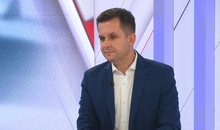
Tirana vote recount, Alimehmeti: CEC defended manipulation
2025-07-01 18:15:05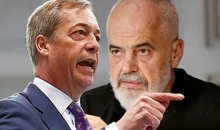

Left Flamurtari, striker signs with another Albanian club
2025-07-01 17:43:14
Accident on the Lezhë-Shëngjin axis, one injured
2025-07-01 17:19:35
June temperature records, Italy limits outdoor work
2025-07-01 17:03:15

Meet Kozeta Miliku, named one of the top five scientists in Canada
2025-07-01 16:32:12
"Arsonist" arrested for repeatedly setting fires in Vlora (NAME)
2025-07-01 16:29:45

The ecological integrity of the Vjosa River risks remaining on paper
2025-07-01 16:09:40
Heat Headache/ Causes, Symptoms and Measures You Should Take
2025-07-01 16:01:13
UN: The world must learn to live with heat waves
2025-07-01 15:54:50

Three cars collide in Tirana, one of them catches fire
2025-07-01 15:38:16
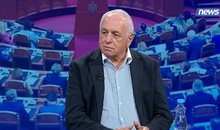
Shehu: Whoever doesn't want Berisha, doesn't want the opposition 'war'!
2025-07-01 15:19:20
Berisha requests the OSCE Assembly: Help my nation vote freely
2025-07-01 15:11:46
Be careful with medications: Some of them can harm your sex life
2025-07-01 15:00:32

'Golden Bullet'/ Lawyers leave the courtroom, Altin Ndoc's trial postponed again
2025-07-01 14:44:52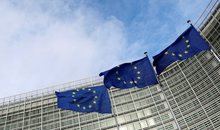
EU changes leadership, Kosovo in a number of places
2025-07-01 14:40:01
Should we drink a lot of water? Experts are surprised: You risk hyponatremia
2025-07-01 14:30:20



Lëpusha beyond Rama's postcards: A village that is being silently abandoned
2025-07-01 13:41:56
Scorching temperatures in France close the Eiffel Tower
2025-07-01 13:29:35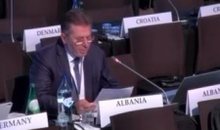
Media: China, Iran and North Korea, a threat to European security
2025-07-01 13:20:12
Albania drops in global index: Less calm, more insecure
2025-07-01 13:09:35
Road collapses, 5 villages in Martanesh risk being isolated
2025-07-01 13:03:04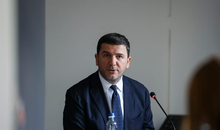
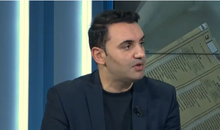
Këlliçi: Opposition action to be decided in September
2025-07-01 12:48:49
Four tips for coping with the heat wave
2025-07-01 12:38:53
Car hits pedestrian on Transbalkan road
2025-07-01 12:27:09
Authors of 9 robberies, Erjon Sopoti and Abdullah Zyberi arrested
2025-07-01 12:15:56

He abused his minor daughter, this is a 36-year-old man in custody in Fier
2025-07-01 11:50:34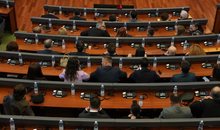
The constitution of the Kosovo Assembly fails for the 40th time
2025-07-01 11:40:08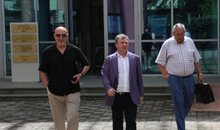



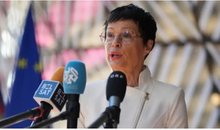
EU confirms support for the Western Balkans
2025-07-01 10:50:45
Serious in Fier! Father sexually abuses his minor daughter
2025-07-01 10:32:33
One year since the passing of the colossus of Albanian literature, Ismail Kadare
2025-07-01 10:25:26


They supplied the 'spaçators' with drugs, two young men are arrested in Tirana
2025-07-01 09:54:09
Europe is "scorching", how dangerous are high temperatures?
2025-07-01 09:48:56

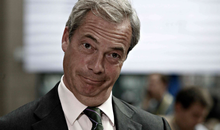
Nigel Farage in Albania: but why?
2025-07-01 09:13:12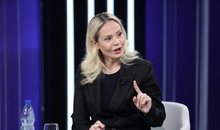
Xama: The "Partizani" dossier is quite weak and without facts!
2025-07-01 09:04:47

Foreign exchange, the rate at which foreign currencies are sold and bought
2025-07-01 08:35:39
Fabricators again warn of factory closures and job cuts
2025-07-01 08:21:30
Horoscope, what do the stars have in store for you today?
2025-07-01 08:08:59
Scorching hot, temperatures reaching 40°C
2025-07-01 07:57:12
Morning Post/ In 2 lines: What mattered yesterday in Albania
2025-07-01 07:42:59
Recount after May 11, Braho: I had no expectations for massive vote trafficking
2025-06-30 22:54:18

Second hearing on the protected areas law, Zhupa: Unconstitutional and dangerous
2025-06-30 22:18:46



Israel-Iran conflict, Bushati: Albanians should be concerned
2025-06-30 21:32:42

Fuga: Journalism in Albania today in severe crisis
2025-06-30 21:07:11
"There is no room for panic"/ Moore: Serbia does not dare to attack Kosovo!
2025-06-30 20:49:53

Temperatures above 40 degrees, France closes nuclear plants and schools
2025-06-30 20:28:42
Lavrov: NATO is risking self-destruction with new military budget
2025-06-30 20:13:54
Turkey against the "Bektashi state" in Albania: Give up this idea!
2025-06-30 20:03:24

Accused of sexual abuse, producer Diddy awaits court decision
2025-06-30 19:40:44



Kurti and Vučić "face off" tomorrow in Skopje
2025-06-30 18:44:12
Tourism: new season, old problems
2025-06-30 18:27:23


Construction worker dies after falling from scaffolding in Berat
2025-06-30 17:51:44




Almost free housing: East Germany against depopulation
2025-06-30 16:43:06

Hamas says nearly 60 people killed in Gaza as Trump calls for ceasefire
2025-06-30 16:14:15
Drownings on beaches/ Expert Softa: Negligence and incompetence by institutions!
2025-06-30 16:00:03


European ports are overloaded due to Trump tariffs
2025-06-30 15:30:44
The prosecution sends two Korça Municipality officials to trial
2025-06-30 15:19:54

Lezha/ Police impose 3165 administrative measures, handcuff 19 drivers
2025-06-30 14:55:04
